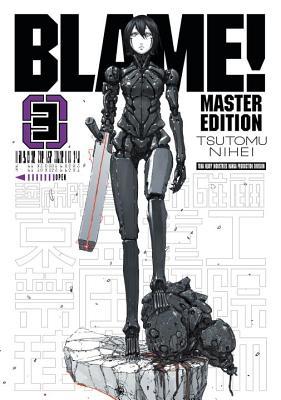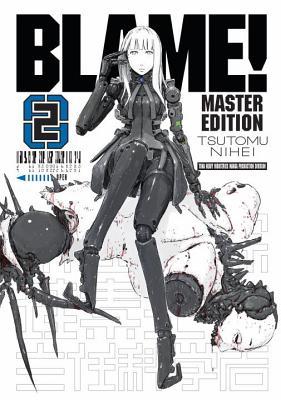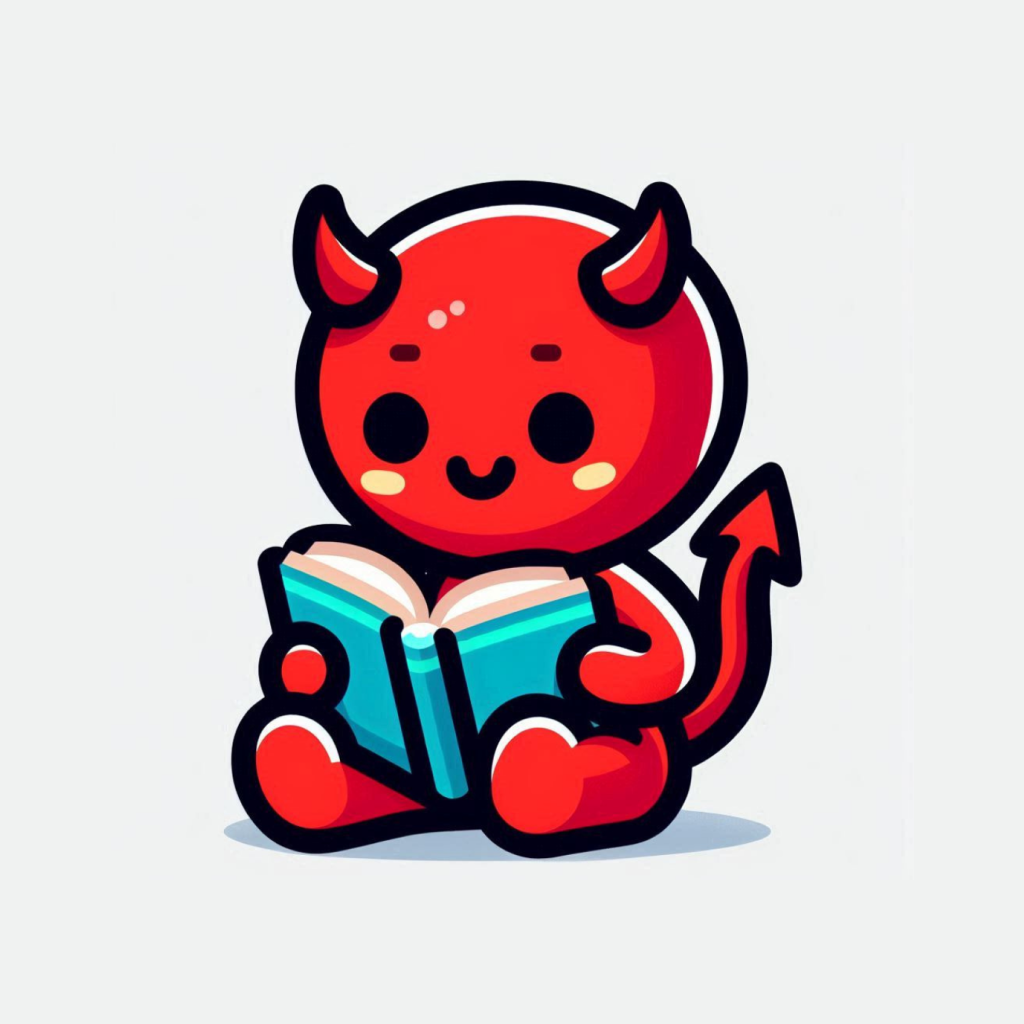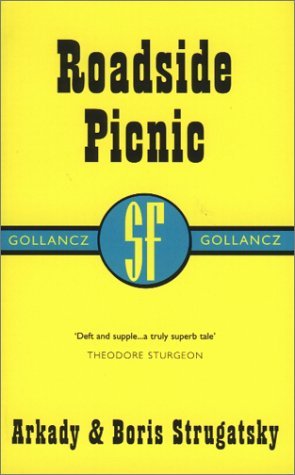Brandon_Bound finished reading and wrote a review...
I really can't fathom why 'dystopian' was chosen as a descriptor for this novel. Certainly, a lot of the overall notes hidden in Tawada's writing can be viewed as dystopian in nature. However, you would have to be a fool to insist that Tawada's inclusion of these factors is for an explicit purpose as such.
Tawada's work here is the effective sublimation of a dystopia, passing on so quickly from its horrible world to something, somewhere else that the word carries no meaning. Mumei might have to endure a terrible battle with breakfast every morning— full of suffering and challenge— but that cannot rob him of his joy and curiosity in life. Yoshiro may see his family wilt away in front of him, with his fragile great-grandson being all that's left, but the delicate little creature brings him an indescribable amount of joy.
It's something so much more tender and careful than just dystopian fiction, something that enforces this environment to tell a story that could only exist within it. In a sense, it might be the most correct to call The Emissary something along the lines of a Tragicomedy. Humor exists, oddity is abound, and creativity flows from every crack; but just like Mumei reflects a dark abyss of worry and fright in Yoshiro, so does this story within us.
Brandon_Bound started reading...

The Emissary
Yōko Tawada
Brandon_Bound set their yearly reading goal to 105
Brandon_Bound's 2026 Reading Challenge






Brandon_Bound finished reading and wrote a review...
I think ultimately, Thuận's Elevator in Saigon is equally too short and too lengthy to succeed at what it wants to. With its limited page count, it can struggle to effectively deliver all the various workings of Asian diaspora and experience, fumble with its more satirical theatrics of sociopolitical discussion, and rely too heavily on directly worded excerpts to get the point across.
On the other hand, it is only by the halfway point of the book that you begin to understand what Thuận is really aiming for. The initial hook is rather riveting, but it quickly pivots into a series of scenery, time periods, and protagonists. With only 192 pages, and a story that hungers for more, these changes don't execute well on the concept that I believe Thuận was aiming for— a slow progression through an obsession as a way to process grief.
If you pick apart the pieces of the novel— isolating them into their individual aspects— Thuận's narrative at a conceptual level is quite effective; the framing of grief, wealth and humanity, historical politics and so on do well with the initial catalyst of the novel. However, when sewn together the final product is much too loud and uncoordinated to be able to effectively convey these sentiments. You will be left wondering why we need seemingly random scenes with our protagonist until you're able to have the dots connected, purely because Thuận chooses to revisit and re-contextualize them. This does not occur with every oddity and loose end, however, which presents a difficult angle of perspective for what exactly some of these moments are included for.
I wouldn't necessarily say I disliked reading Elevator in Saigon. Thuận's prose itself can be quite fun and engaging, but the story itself struggles to find a solid shape and purpose. Does it want to extol on the difficulties of the prior generations under separate and challenging political management? Does it wish to examine the various, and typically strained, relationships of family members split across wealth and world alike? Does it wish to playfully poke at a fun and slightly absurd romp around the city of love? All of the above exist in some context here, but Thuận can't seem to pick which to pursue. The result: an enjoyable but disjointed and awkward read that leaves you with little of a conclusion and an equal amount of satisfaction.
Brandon_Bound finished reading and wrote a review...
Three novellas, three perspectives, and three conclusions that remain equally violent, surprisingly. I think Laura Van Der Berg's foreword can help with digesting these short stories, to a degree, but that it similarly forces the reader away from the greater purpose that Ogawa posits here.
In a sense, yes, these three women all exist on the exterior of their lives, but it's more important to understand from where they choose to perch, and which pieces of the detritus and grunge that they elect to examine and peck at like vultures. Each woman chooses a different perspective— a rather obvious conclusion— but all find themselves focused on the concept of family; a static being that slowly changes shape and form in front of them in ways that they cannot come to terms with. The concept of a family is a monstrous and unknown existence which, in equal parts, taunts and terrorizes these three character. How a girl exists in an orphanage while not being an orphan herself. How a woman must contest with something else controlling and affecting her sister. How a wife must come to grips with uprooting her life and giving up the familiarity of her existence.
The three stories focus a great deal on how these voyeurs can manage to cope when their position, safely seated outside of first-hand experience, begin to deteriorate their desires and interests (without their permission). So, while Van Der Berg's introduction understands a portion of their relationships with life, it neglects the most important connections. It also drones on with passages from the novella's themselves. A pet peeve of mine, to say the least (thanks to the writing habits of my younger self).
Regardless of Van Der Berg's influence on your potential readings of the... read, Ogawa's work still feels effortlessly blunt, hiding the sharpest of tools in-between the characters, lines, and letters of these stories. On the surface, they are undeniably perverse affairs that have their own allure as intriguing and undeniably unique reads, but taking the time to pick apart the smaller moments and meditate on why Ogawa has done what they have will lead you to much more rewarding and connected conclusions.
Of the three, I felt like Dormitory was the easiest to dissect for meaning and value, while Pregnancy Diary didn't deliver a great deal that felt novel(la). The Diving Pool was by far the most intriguing of the trio, pushing the limits of a palatable read, but still conveying the most off-color and damning scenario of the three.
Obviously, a very great (and easy) read.
Brandon_Bound finished reading and wrote a review...
While not quite the highs of the first volume, Nihei manages the dialogue here in far better fashion than the second volume. A hard feat to explain without spoilers, but I think having passed the "setup" phase for this narrative arc, Nihei's visual capabilities are able to soar with the absurd ideas that seem almost recklessly strewn across the page. A feat of science fiction as old as time, wherein each twist and turn demands your curiosity. Plenty of fun potential through the middle-to-back sections of this omnibus.
Brandon_Bound finished reading and wrote a review...
A step down from the prior volume, purely for the narrative that begins to ensue. Blame! still remains a great and intensely intriguing read, but struggles to reconcile the honing of its narrative vehicle with the scale with which Kyrii's mission operates.
The inclusion of color pages, though, is incredible. It immediately highlights Nihei's detail with palpable emotion; scale is not necessarily removed from the equation, but a considerable force overrides it with how grim the blues are, how antagonizing the reds can be— the megastructure slowly begins to rise from the shadows and prove with startling fright to its inhabitants that a soul may lurk in it somewhere.
All in all, I'm still quite infatuated, and I wouldn't think this step down any more (or perhaps even less) than I expected. I think you can see where Nihei wishes to have done things differently in this volume, but I don't think that affects the overall allure of this story.
Brandon_Bound finished reading and wrote a review...
I'm not really sure how to justify my being late to Blame!, truthfully. Evidently, I have a terrible habit of holding off on series that will absolutely be up my alley, but even then this delay feels painful. Perhaps I was a little off-put by Nihei's more contemporary works, but Blame! truly feels like a sublime cyberpunk-grunge-dark-future to explore.
By and far the highest praise ultimately comes down to Nihei's desire— hardly even necessity in the case of this manga— to remove rational and linear dialogue. Much like the city that ceaselessly expands without reason, so does Kyrii's journey to find the net terminal gene. The world immediately presents as something so unfathomable and dense that you simply must let it and its megastructures wash over you. A very simple feat given Nihei's artistic talent. They manage their megastructures with such incredible size and scope in a way that makes me reminiscent of Q Hayashida's artwork throughout Dorohedoro and Dai Dark.
Outside of the context of art and dialogue however, I wouldn't say there's much else to add. Nihei does allow a story to arise, albeit through countless fractured engagements, but that's not truly the draw of this manga. In essence, I would argue that there are two avenues for such a story to pursue: the pointed and purposeful narrative of inequality and striation that technology and power inherently produce, and the absolute limits of human cognition and society. The former must remain at the minimum a vestige of modern humanity, but the latter... rather than sky being the limit, it more so feels like it is the most base requirement. A concept which Nihei, in his first manga back in 1997, has grasped incredibly well.
Japan being the pinnacle of Cyberpunk and Dark-Future storytelling from the 90s well into the 2000s still remains an ironic statement. One that I will gladly accept for truth, but still remains comical given the yellow peril-esque origins of cyberpunk's popularity.
Brandon_Bound commented on a post


As the title states, I'm curious as to what other people envision as the Isekai genre. It "used to" be considered a sub genre, but over its years of tenure has developed into a fully fleshed out section of fiction for light novels (complete with its own host of sub genres).
Typically, the agreed upon rules are that more than one "inhabitable world" must exist, and for one reason or another the main character is moved, or can move themselves, between these worlds. The question is, how rigid must that (as well as subsequent) restriction(s) be.
If there are no restrictions, series like Bleach (though not a light novel in its mainline story) can fall under the Isekai umbrella, but most people understand it to not be. My argument is for the fact that Ichigo primarily inhabits his original world. But then when you consider a work like I'm Standing On A Million Lives, or Sword Art Online (an actual isekai) the idea of boundaries becomes a little less clear.
All in all, it makes me curious as to how people might attempt to provide a concrete description for Isekai- which is an actual word in the English language (according to the Oxford Dictionary) as of March 2024. Intuitively, we seem to have a collective understanding, but I've found it interesting to try and put into words.
Brandon_Bound commented on a post from the Pagebound Club forum
Is anyone else hopping on the Personal Curriculum bandwagon? If so - what subjects are you "studying" and which books are you reading to the purpose? I am fascinated by this trend!
EDIT: Forgot to include the subjects I'm personally working on! EDITEDIT: And the books I'm reading!!
HISTORY:
- Life in the British Royal Navy (Late 18th/Early 19th centuries)*
- "The Wooden World" by N.A.M. Rodger
- "Harbors and High Seas" by Dean King
- "The Illustrated Companion to Nelson's Navy" - by Nicholas Blake & Richard Lawrence
- Jane Austen's Life & Works*
- all 6 of Jane Austen's published novels (technically a re-read)
- "The Worlds of Jane Austen" by Helena Kelly
- "Jane Austen: A Life" by Claire Tomalin
- "Jane Austen's Letters" curated by Susan Coolidge
CREATIVITY:
- Writing (I'm attempting to write a novel so books on style and structure are key)*
- "The Elements of Style" by Strunk, White, & Kalman
- "On Writing" by Stephen King
- "Dreyer's English" by Benjamin Dreyer
- Drawing (I'm an aspiring digital artist too!)*
- "Figure Drawing: Design & Invention" by Michael Hampton
- Knitting (someday I will finish a project)*
- The DK Knitting Book
RELIGION:
- Still refining this subject a bit, but I would like to learn more about the world's religions generally!
Brandon_Bound commented on a post from the Pagebound Club forum
I don’t know if everyone already knows this and I’m just behind the times, but I just found out that Kuang has signed a deal with HarperCollins for 4 new books, including two fantasy novels and two literary novels. She has a new book coming out next year called “Taipei Story”
Brandon_Bound commented on Brandon_Bound's update
Brandon_Bound DNF'd a book

The Spellshop
Sarah Beth Durst
Brandon_Bound DNF'd a book

The Spellshop
Sarah Beth Durst
Brandon_Bound commented on a post from the Pagebound Club forum
As an introduction to myself: I studied English in college. Studying rhetorical devices and strategies, their impact on texts in accomplishing an author's purpose, and the impact of literature on society is what I formally studied. That's why I comment on books the way I do. I was trained and given a specific set of tools for understanding and commenting on literature.
I'm noticing that one of the words often colloquially used to describe and classify books is "trope." I'm not here to say that's wrong. But I would like to share what it means in a literary context so we can understand each other better. I know we rely on Google and search engines to find information, and I'm hoping that by sharing some of this information, it will help you in your quest to find the books you're looking for.
A trope, in the traditional sense, is a rhetorical strategy where an author uses words in ways that differ from their literal meaning. A metaphor is a trope. All kinds of irony would be tropes. Idioms are tropes. When language ceases to be literal and becomes figurative, that is a trope.
How the meaning has changed happened when certain uses of tropes became overdone. Then it came to mean 'hack behavior by a certain type of writer or artist.' Now its meaning is shifting again from something that is overdone to almost a kind of classifier. Once something is done (or overdone) enough to become a feature, people are now calling that a trope.
Language changes. I'm not a prescriptivist. I'm not here to tell you that how you're using trope is wrong. I'm here to explain how you arrived at where you are, and why there will be confusion. We've got two groups of people, both in book spaces, using the same word to mean two very different things.
So when people wanted to identify a feature in a story or a body of literature for the purposes of classifying them together, what was that called before "trope" started serving in that function?
It was (and still is) called a motif. And once a motif happens enough to become a dominant feature within a genre, it becomes a subgenre. So "found family" on its own is a motif. It can happen independently across genres. "Time Travel" has been a motif for so long, it has developed conventions and motifs of its own. It has become its own subgenre that straddles science fiction and fantasy, depending on which of those motifs are present.
Many of the subgenres you love aren't new. They have existing names from the groups who were reading them for decades (and even centuries) before you. Humans have been classifying them together, like with like, during literary movements with genre/category names of their own. Once you tap into what these subgenres are called, you can easily find more books similar to the ones you like. And the classification of subgenre is a process that still continues today. You shape them with your reading habits, with the elements of story you search for and prioritize in the exact conversations you're having.
"Cozy" I think used to be a setting and tone motif that is quickly becoming its own subgenre, especially as it crosses multiple genres (mystery and fantasy), each with their own conventions and expectations. And many of the "tropes" people look for are motifs and literary elements that are making up those new subgenres. And I think part of why "tropes" stuck for this function is that tropes can cross strict genre boundaries in ways that we might be tempted to say that subgenres can't.
But there can be infinite numbers of subgenres, and they cross genre boundaries all the time now. You can also make up your own. This is a process that doesn't just belong to academics. It belongs to the communities reading the books. And it's something I think readers today have a much better sense of now than when I was in school. And because of how connected we are, they are being created faster than ever before.
I didn't know that Iron Widow was Silkpunk, or that Emily Wilde was Epistolary Fantasy. But now that I know that, I can find other books like them. And that's really neat.
Brandon_Bound commented on a post from the Pagebound Club forum
I just found out about this amazing genre! Apparently it's a mix of Chinese culture, fantasy and BL ... I think. If any of you knows more about it or have any novel suggestions, please comment!!! 😁
Brandon_Bound finished reading and wrote a review...
An incredibly strong showing from Dazai as a debut (published) work. It's "stream of consciousness" approach is perfect for the themes of growth, uncertainty, grief, and many others that the schoolgirl projects as if frozen in that single day.
While undoubtedly carrying the more depressive and grim existence of Dazai, Schoolgirl forms an opinion surprisingly more separate from the rest of Dazai's body of works in spite of some of their similarities. In particular, its message presented as a monologue at the end of the novel retains an impressively positive spin from the author.
In between its opening and ending, Dazai fits all manner of critique and irony, ranging from implicit discussion of sexism and its perpetrators (a commendable feat for the 30s in Japan) to a disapproving nod to Japanese Imperialism; the schoolgirl dances with uncertainty through her usual moments in a way that feels as though she specifically caters them to the reader.
An impossibly short read for the value that Dazai imparts, Schoolgirl remains an emotional roller coaster that still manages a valuable and relatable message while getting close to being a century old. While it's far from the greatest heights of Dazai's works, this short novella is something that I still hold in high regard and close to my chest.
Post from the Pagebound Club forum
To kick off the (Thanksgiving, to Canadians) weekend, I've posted the discussions questions for the Schoolgirl read along in the forums. While I cheated a little and got ahead on my re-read to create these discussion questions, I found it incredibly fun to come up with them, and also interesting to find that there's really no proper resource for finding other discussion groups or questions. I would have thought that for an author such as Dazai, and for his debut work that's so dense (yet short), there would be something hanging out somewhere on the internet. Alas, I was left high and dry and had to come up with them all on my own.
As an addition though, anybody that's previously read Dazai is also welcome to answer the discussion questions (of course). I will also be keeping an eye on reviews and thoughts in the forum this weekend for those that aren't interested in the discussion questions.
Brandon_Bound commented on a post
Post from the Schoolgirl forum










